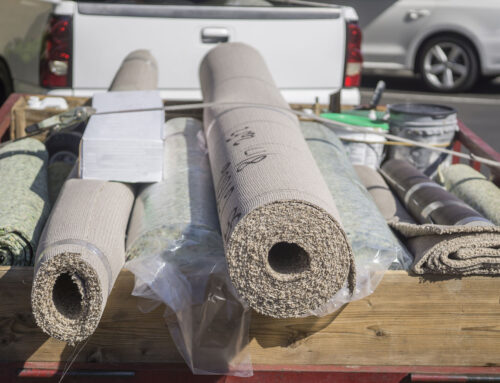
On my last vacation with the family, I found myself catching up with my former colleague, Ron, who happened to be at the same hotel. He was on a much-needed break from his desk job back at home and was spending his free time researching the ways he could break out on his own. Of course, during that discussion, Ron admitted that what he really wanted to do was invest in real estate, like me. I quit the corporate world years ago to buy, renovate, and sell property and have done quite well for myself since then. That’s why he asked if he could pick my brain about a few things.
One of the more important questions he had was how to properly evaluate properties. It’s a great question and comes up often from both new and experienced investors. Even if you attend a top-notch real estate investor training program or have been investing for a while, it’s your valuation skills that could make or break your returns when it’s time to crunch the numbers on a deal. And, these days, there are plenty of real estate investment valuation tools out there to help in this department. So, I told Ron what he could expect with the most popular options available.
THE RUNDOWN ON REAL ESTATE INVESTMENT VALUATION TOOLS
If you’ve been thinking about buying your first investment property, or are hoping to expand your existing portfolio, you probably have the same concern as Ron. If you don’t, you absolutely should. The importance of getting your calculations right when it comes to securing a good deal cannot be overstated. Every step of evaluating a property—assessing rehab costs, estimating the After Repair Value (ARV), and determining a fair purchase price—influences whether and how you should move forward.
You’ll still find some real estate investors who break out a pen and paper to crunch the numbers. But most of today’s investors use some kind of software tool. Whether you use a simple Excel spreadsheet or fancy software, every analysis should—at minimum—cover the following basic categories.
- Cost basis. Simply put, this is the amount that you pay to purchase the property with either cash or debt obligations. It also includes any associated expenses related to the purchase such as taxes or liens that you clear in the transaction. To get the most out of your investment, you’ll want your cost basis to be as low as possible while still delivering a fair and ethical real estate transaction.
- Cost for repairs. You’ll need to itemize the costs of any necessary repairs or upgrades to make the property marketable. Some software options will make you research the costs and input the data manually. Other programs will automate this step to some extent, but proceed with caution because the software may not be accurate for your region. The only valuation method that I’m aware of that automatically figures locally-specific repair costs is ValueChek™, which is available exclusively to HomeVestors® franchisees.
- Holding costs. Every day that you hold the property equates to more money taken out of your pocket. Whether it’s paying to keep the electricity on in the house or paying the contractor for additional days to get the job done right, you’ll want to keep an eye on costs. Also, it’s wise to include a bit of a cushion in your budget because only one thing is certain: you can expect the unexpected.
- Estimated After Repair Value (ARV). The ARV is calculated based on recently sold comparables, or houses that are within the same neighborhood and have similar square footage and features. While some investors get the data on their own using Zillow, those numbers are not necessarily accurate. To get the best ARV estimate, you’re going to need access to MLS data from a real estate agent. This will give you an idea of what constitutes a fair sale price for the property once you’ve completed the rehabbing process. This is the most effective way to determine your potential return on investment.
Getting the numbers wrong can have severe consequences. If you pay too much for a property or overspend on repairs, you put your returns at risk. Offer too little, and you might never see an acceptance. And, if you overestimate your ARV, you could end up with a house that sits on the market for a very long time. So, whether you’re looking at real estate investments in Queens, NY or in the suburbs of Chicago, you’ve got to be able to perform accurate valuations in order to make a good business out of investing. And, you’ll need to be able to do it fast so that you can make fair and timely offers before your competitors do.
Luckily, there are several real estate investment valuation tools on the market that will help you run the numbers when you find a property you’d like to buy, renovate, and sell. Let me describe a few of your options here:
1) RealData
RealData offers two software products designed to help you evaluate properties quickly: Real Estate Investment Analysis (REIA) Express and REIA Pro. Though REIA Pro comes with a few extra bells and whistles, like currency conversion and an extensive commercial income module, both programs provide an analysis tool for residential investors. They can each be bundled with other products, too, as your company grows and your business needs expand. Relatively inexpensive at $159 for the Express version and $495 for the Pro version, you get a decent foundation for laying the valuation groundwork for most investment deals.
Unfortunately, though the initial cost for either program may be low, your investment of money—and time—over the long haul could run high. First, unless you choose to add on additional products, you won’t get much more than the basics with these tools. That may or may not work for you, depending on how complicated your projects are and how fast you want to grow your business. Even then, you’ll have to gather and enter all of the data yourself into an Excel spreadsheet in order to get the calculations you need to make an informed decision about a property. There are just faster ways to get the numbers that won’t cost you extra.
2) Valuate
Valuate is a web-based property analysis tool that also gives you the option to easily share your numbers with other members on your team. There are three pricing plans, from free to $499 per year, based on the number of files you need to create and how you want to share them. It’s a fairly streamlined tool that generates automatic feedback from within the system if you forget to fill out a particular field or have entered numbers that might risk your potential returns. And, to get a good feel for how it works, you can tour the program online and interact with a live analysis before committing.
But, there are several issues that deflect from the overall value of this tool. You’ll have to come up with the repair numbers yourself, which could be a crapshoot unless you’ve got the time to get estimates before you enter your data. And, unless you pay for the highest plan available, you’ll get minimal tech support if the system, or your access to it, poses problems. You’ll also be limited on the number of homes you can analyze and the amount of info you can save. If you’re only going after one property at a time, that’s fine. But, it’s also not likely for a growing real estate investment portfolio. So, even though you can try Valuation before you buy, for all that you don’t get, you may want to pass.
3) Real Estate Tools
Real Estate Tools has a Property Fixer app that lets you analyze deals online or from your phone in a matter of minutes. Like Valuate, there are different pricing tiers depending on the number of houses you need to evaluate and the amount of information you want to store. The most expensive plan allows you to create portfolios, evaluate multi-unit and commercial properties in addition to single-family homes, and itemize all costs for a project. But, all the plans give you the option to add photos to your deals and create “what if” scenarios so that you can choose your best exit strategy.
The problems with this app mirror many of those found with Valuate and other, similar tools. Until you start to know rehab costs like the back of your hand, you’re gonna have to guess at what to enter in the repair fields. This may speed up the analysis, but it won’t necessarily make it accurate. And, to get the most benefit from what the software has to offer, you’re going to have to pay for it. The free version, for example, only lets you deal with one property and three expenses at a time. Relying on limited calculations won’t get you close to correctly assessing the numbers and that could put you far from seeing any returns if you overpay on a house that needs more than just three repairs.
4) DealCheck
DealCheck is an inexpensive online tool that analyzes single-family homes, multi-family units, and commercial real estate. The program will import data about a particular property from Zillow, after which you can enter more specific details—like your purchase price and renovation budget—to get an overview of the deal and the potential returns you can expect. It’ll even help you find distressed properties for sale, investor-friendly lenders, and your highest possible purchase price for a property based on the numbers you enter. And, you can access the system on your computer or on your phone for as little as $7 a month.
Keep in mind, however, that the property data from Zillow isn’t always correct and, especially if you’re dealing with an off-market property, there may be little-to-no info to import. Getting the full picture of an investment house can be difficult to do if your view is limited. Even if you have reasonably accurate property data, you’re still gonna have to plug in the rehab numbers with your best guesses to determine how much you should offer and what your ROI could be. That could turn disastrous for optimal returns if you miss the mark. With very little certainty surrounding this tool, I’m not certain you should use it—even for free.
5) ValueChek™
HomeVestors®’ proprietary valuation software ValueChek™ is one of the most comprehensive and user-friendly real estate investment analysis and valuation systems available to investors today. ValueChek™can estimate the cost of over 80 different repairs, adjusting for local rates on labor and materials, to help you determine whether the deal makes sense. So, you don’t have to guess. And, because some critical details about a home—like the number of bedrooms and bathrooms—are not always accurate in public records or when posted online, you can adjust the information to get an even better assessment of a property’s value. You can also compare area comps to help you choose a list price that will attract the right buyers and deliver a potentially good ROI—right from the app in your phone. There’s even a built-in messaging system. So, if you have questions that need answers fast, you can share the details of the deal, including photographs, with your HomeVestors® Development Agent. With ValueChek, you’ve got both a tool and a team specifically created to give you an edge over the investing competition.
A BETTER TOOL THAT COMES WITH THE BEST TEAM
Back when I left my corporate job and started investing in real estate, I used a valuation method that required the use of Excel. Having come from a desk job where I used spreadsheets daily, creating formulas and entering numbers was easier for me than most. Real estate investment valuation methods and tools have come a long way since then and that’s a good thing. I grew tired of running home to my computer to tally up my best guesses on a deal only to get beat out by someone who got their offer in first. After researching several different methods, I chose ValueChek™.
ValueChek™ has allowed me to run the numbers on deals quickly and accurately so that I can confidently make competitive offers on properties or walk away with no regrets. It’s helped me make smarter investment decisions that have, ultimately, led to my thriving investment business. But, getting free access to ValueChek™ isn’t the only thing I’ve gained by becoming an independently owned and operated HomeVestors® franchisee. The fast feedback I get from my Development Agent has helped me save money, and save a few deals, over the years. It’s hard to put a price tag on that.
Get a valuation tool that comes with an invaluable team. Contact HomeVestors® today!
Each franchise office is independently owned and operated.
Contact
"*" indicates required fields





